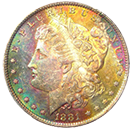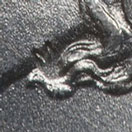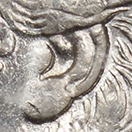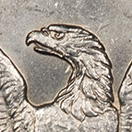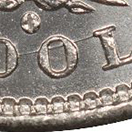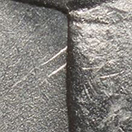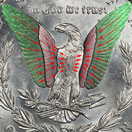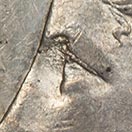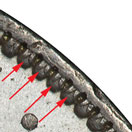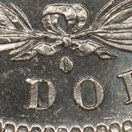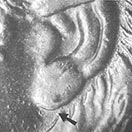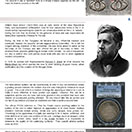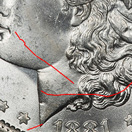
January 2022 - Welcome
Sources
Search
Contact
Home
Welcome
Click on year to expand
2022
2021
2020
2019
2018
2017
2016
2015
Welcome
Antebellum Mint Supervisors
The Mumford Affair
![]() Monster Toned Morgans
Monster Toned Morgans
While working on some other Morgan Dollar communications in early January I had someone communicate a link to a new web site for monster toned Morgans. This site offers a significant update to work we and others have quoted and does so in a more modern web format.
We recommend bookmarking this one if you have any interest in Toned Morgans. Monster Toned Morgans
![]()
![]() Feedback from John
Feedback from John
We still have one coin to submit to John for evaluation (VAMs 77, 77A) , and while he and others have already expressed some doubt about this one we want to spend some time under a scope to make our case either way.
![]()
![]() Die Fingerprints VAMs 1 and 1A
Die Fingerprints VAMs 1 and 1A
Well we are finally at the end of the road for looking at die cracks and breaks for the 1881-O. This has been a long and sometimes arduous journey, but we are there with the known VAMs as of this date.
As a final discussion we are looking into VAM's 1 and 1A, in theory the progenitors of all other 1881-O VAM's. But is this the case?
In early December I sent Leroy a note asking for his knowledge on the discovery of these two VAMs. I have not received his response yet, but here are some things to consider.
My assumption (without looking) was that the discovery was in the sequence of 1 and then 1A since the only difference is the spike in the upper loop of the first 8. But this is inaccurate when we look at the documented discovery sequence. That sequence is 1, 3, 2, 4, 10, 1A, 5, 6, 6A, 7, 8, and 9 under the current numbering scheme and as documented on VAMworld. These are also the ten VAMs listed in the 1971 Comprehensive Encyclopedia.
Within this grouping, five of the discoveries were by Leonard Hinckley in 1974, and one of these was the VAM 1A. Leonard Hinckley worked on many series and by no means were his discoveries limited to the 1881-O.
![]()
New Coins
In December we revealed eight new coins to the collection, seven of which had at least some toning. These eight have now been added to the web site and documented as we have all the other coins.
During January we acquired two more coins, both toned but they need to go to PCGS for imaging. But they are:
33972019 MS62 VAM TBD
42699398 MS63 VAM 5
One ungraded, toned example and the VAM TBD
The two coins with unidentified VAMs are heavily toned and are going to take a little work. The VAM 5 is easy.
![]()
VAMs 77 and 77A
While JB and others make the transition to the new VAMworld role we will take a new look at the VAM 77A discovery coin. There is some belief that this is a VAM 68 coin, but we want to get them under a microscope to either prove or disprove this belief.
So this will be coupled with the VAM 1 and 1A analysis mentioned here.
![]()
Now that a great deal of the die fingerprint work is behind me I plan to return to the study of the Mint Supervisors in New Orleans. We stopped this study with the onset of the Civil War, so time to get back to that look into time.
1837 - 1839 David M. Bradford
1839 - 1850 Joseph M. Kennedy
1850 - 1852 Robert M. McAlpin
1853 - 1857 Charles F. Bienvenu
1857 - 1861 William Augustus Elmore
Next up is, well it all depends......
We know that with the outbreak of the Civil War some of the employees stayed behind in New Orleans and worked for the Confederacy. Essentially they kept their jobs, just changed hats. William Elmore apparently resigned as the Superintendent at the outbreak of hostilities and closing of the Mint as a United States facility.
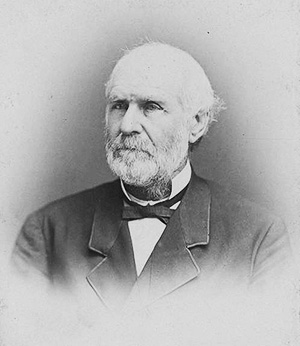
William Augustus Elmore
Others, like M. F. Bonzano who had come south to work, returned home to the north for the duration of the war.
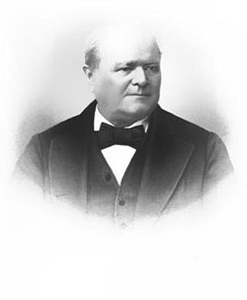
Maximilian Ferdinand Bonzano
We know that Bonzano returned to New Orleans to assess the condition of the Mint building prior to its reopening to coin Morgan Dollars in 1878.
![]()
VAMs 1 and 1A
We have not classified any coins as VAM 1 or 1A in years and I think for good reason. These were early in this project and what seemed like featureless coins at the time have now received classifications as later discoveries.
But as we dig into the analysis not all coins fall neatly into a new or different classification as an existing VAM. For sure many of the coins have Reverse Die d not a, just in a different die state than other identifiable VAMs. But the Obverse Dies vary, or seem to at this stage. Our die crack analysis is proving to be a great shortcut to the identification of these dies.
Rather than jumping into this with conclusions we are going to take the month of February to look at the fifteen VAM 1 and five VAM 1A coins in more detail and report back here with some conclusions. For sure this will be a coin by coin analysis and there might even be a discovery or two buried within this group.
![]()
New Orleans was in the Confederacy for only a short period of time and returned to Union control in 1862. The military commander of the city, General Benjamin Franklin Butler, was despised by locals for what was considered to be inappropriate confiscation of property and disdain for local citizens.

General Benjamin Franklin Butler
Butler had even received the nickname of "spoons" for allegedly confiscating the silver from local residents and pocketing the profits for himself.

William Bruce Mumford
One of the most controversial actions by Union forces involved the hoisting of the Union flag over the Mint building while a surrender was still being negotiated on April 25, 1862. A group of local citizens that included Mumford removed the flag even while being fired on from the USS Pocahontas.
Justice was swifter in those days, a lot swifter. Mumford was arrested and tried for treason on May 30 before a military tribunal. Found guilty he was hanged on June 7 in the courtyard of the Mint.
Mumford's execution brought swift condemnation from CSA leaders, primarily because he had removed the flag while New Orleans was still in Confederate hands, and a peaceful surrender was being negotiated.
Old scores are rarely settled or die easily. Mumford's body was later moved to Greenwood Cemetery in New Orleans, it rests in a Confederate Monument on that site.

The New Orleans Mint never seemed to lack for controversy or excitement. Perhaps this is the only public execution ever held at a United States Mint.
![]()
Getting Started
Collecting The 1881-O
The 1881-O VAMs



